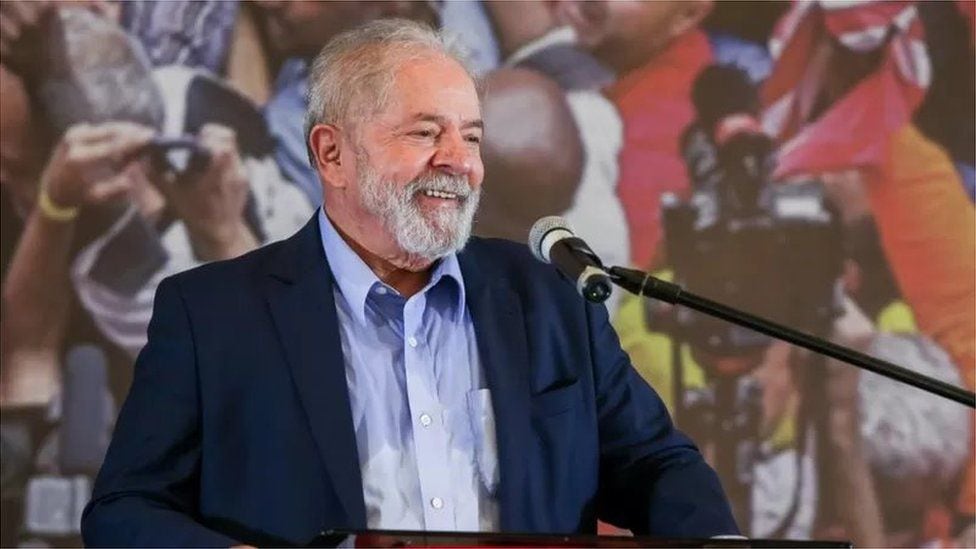A judicial decision once again moved the waters of one of the biggest corruption scandals in Latin America.
A court in Panama decided to suspend the cause behind the case due to lack of evidence “car wash”, which involved the renowned law firm Mossack Fonseca – epicenter of calls “Panama papers” either “Panama papers”– and about 40 more people.
Look: What type of change do Rodolfo Hernández and Gustavo Petro represent in Colombia (and how feasible is it for them to implement it)
Judge Baloísa Marquínez Morán ruled Thursday that prosecutors at the trial were unable to prove that the now-defunct law firm had hidden illicit money from a Brazilian construction company.
“The typology used to cover up and justify funds was not demonstrated. Nor was there evidence of the traceability of the money that presumably comes from the Federative Republic of Brazil. The investigation did not prove that the investigated law firm managed any funds or bank accounts from Brazil.stated the sentence.
The judge also considered that the prosecution failed to demonstrate “what accounts were created in Panama for the purpose of hiding money of illicit origin, nor the amounts of money entered from companies offshore (or extraterritorial)”.
The lawyers Jurgen Mossack and Ramon Fonseca They had been accused of opening accounts abroad so that the Brazilian company could move the bribes.
The decision comes after a preliminary hearing was held in Panama last March after several suspensions.
During the hearing, the lawyers of some 40 people accused in the case asked the judge to grant their clients the definitive dismissal in this criminal case, as well as the lifting of all precautionary measures.
This Thursday, Judge Marquínez Morán ruled the “provisional dismissal in favor of 39 people, and a definitive dismissal for another, investigated within the criminal case for the alleged commission of the crime against the economic order, in the form of money laundering”.
Mossack and Fonseca announced the closure of their offices in 2018, after the leak of millions of financial documents from the firm that brought to light how some personalities and millionaires hid money in tax havens.
What was Lava Jato
The case is known as the biggest corruption scandal in the history of Brazil and had ramifications in numerous Latin American nations.
In Portuguese, Lava Jato means “car wash” and alludes to the place where the case began: a gas station in Brasilia where no one cleaned cars, but the police suspected that they laundered money.
By investigating and using plea agreements with defendants, prosecutors uncovered a bribery scheme for multimillion-dollar contracts by state oil company Petrobras with Brazilian construction companies.
The money diverted from these inflated contracts ended up in the hands of politicians from different parties, as well as intermediaries and businessmen.
And, as some of the construction companies involved obtained construction contracts with other Latin American governments through bribes, the scandal spread throughout the region.
It is estimated that only the construction company Odebrecht distributed bribes for about $800 million in various countries.
Almost 200 people were convicted in Brazil, although many have been released.
Brazilian authorities estimate that they managed to recover the equivalent of US$765 million.
The investigations led to the arrest of former presidents of Peru, Panama and El Salvador.
And in Brazil, the revelations sparked street protests against the political class, which in 2016 reacted by impeaching then-president Dilma Rousseff in a impeachment for budget issues.
Former President Luiz Inacio Lula, who governed Brazil between 2003 and 2010 and leads the Workers’ Party (PT), was sentenced to 12 years in prison accused of receiving an apartment as a bribe from the OAS construction company, although he was later released.

And this is where the scandal in Brazil intersects with what happened this week in Panama.
As Ramón Fonseca Mora, one of the heads of the Panamanian legal team, explained in 2021, the firm was accused “without evidence” of “having sold corporations that were used in Brazil for Lava Jato.”
“According to some Panamanian media publication, that company had been to buy an apartment for (former Brazilian president) Lula da Silva,” he said.
“Well, it was confirmed that Lula did not own that apartment but a poor lady who was a client of our office in Sao Paulo. They were on the wrong floor, Lula was on the ground floor (…) they put us in a process that has neither head nor tail”, then added.
The ruling released this Thursday must be reviewed by the Public Ministry to decide whether or not to appeal the court decision.
Source: Elcomercio
I, Ronald Payne, am a journalist and author who dedicated his life to telling the stories that need to be said. I have over 7 years of experience as a reporter and editor, covering everything from politics to business to crime.

:quality(75)/cloudfront-us-east-1.images.arcpublishing.com/elcomercio/GIZTAMRNGA3C2MJYKQYDAORSGM.jpg)




